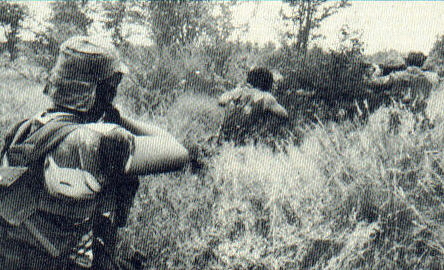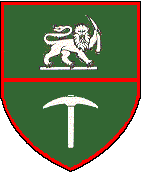|
SMALL
UNIT TACTICS
AND
SPEC. OPS.

The
Rhodesians’ emphasis on special operations for both tactical
objectives and intelligence gathering stands in stark
contrast to the prevailing military view of special operations as an
adjunct to conventional operations and not as a viable and independent
instrument of war. The Rhodesians’ heavy reliance on small, elite
special operations units (Selous Scouts/S.A.S.) admittedly was dictated
by manpower shortages and the overall strain imposed on the country’s
already outnumbered and over committed security forces. Indeed,
approximately 50 percent of all regular training was in the form of
small-unit tactics. Nonetheless,
the weaknesses that necessitated this approach actually proved to be a
source of strength in prosecuting an effective counterinsurgency and
reemphasizes the ineluctable axiom that small, lightly armed and highly
mobile guerrilla bands are best fought by similarly small, lightly armed
and highly mobile government forces.
Rhodesian special operations
units, for example, carried out 42 cross-border raids (and provided
information crucial to the success of five Rhodesian Air Force attacks)
of which all but five were complete successes. Two of
the five failures resulted from poor intelligence, including the April
1979 attempt to kidnap ZIPRA leader Joshua Nkomo. More than 4,000
insurgents were killed in the 23 operations that specifically targeted
the enemy units whereas total security force casualties were only 19
killed or wounded. Of the remaining 19 operations, 15 involved the
destruction of insurgent assets and four the kidnapping of enemy
commanders or senior political officials. The Rhodesians also used these
raids as a means to exploit rivalries within insurgent organizations,
upset relations between the organizations and their host governments,
and dissuade those governments from providing assistance to and
supporting the insurgents’ struggle. Certainly, the most
successful operation was the 1975 assassination of Herbert Chitepo, head
of ZANLA’s political department, in Lusaka, Zambia.
|




